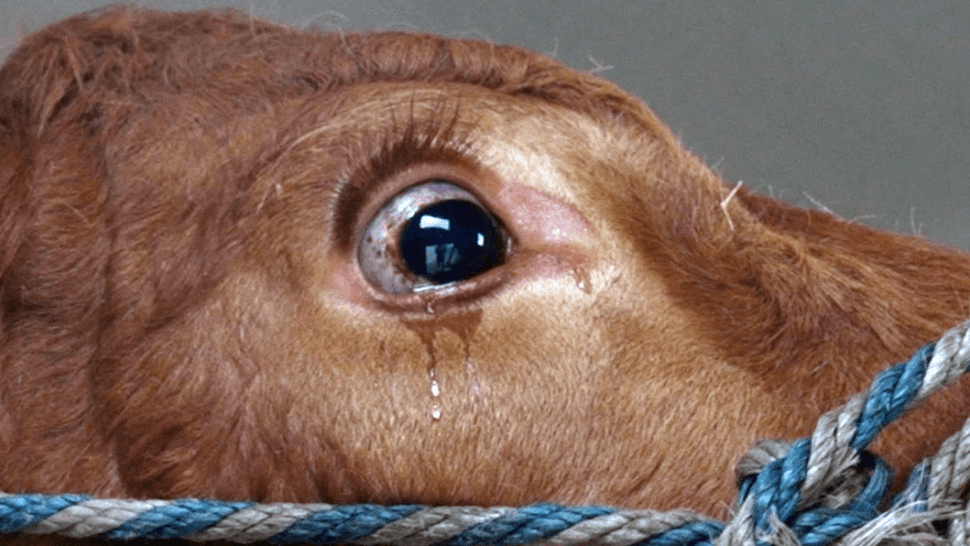A quick look at how much meat we’re consuming and what it’s doing to our planet shows that the meat industry as we know it is not sustainable. Not only are humans eating more meat than at any point in history, but the meat we’re consuming is about as natural as a can of soda. Here’s what you need to know about the American meat industry and its massive impact on our health, our planet, and the economy.
Animal Agriculture Requires a LOT of Water

55% of the water used in the United States goes towards animal agriculture, compared to just 5% consumed by private homes. Today, animal agriculture is responsible for 20-33% of all fresh water consumption worldwide.
(Source: Cowspiracy)
The Government Favors the Meat Industry Over the Vegetable Industry

$38 million in government subsidies go to the meat and dairy industries, but only $17 million, or 0.04%, goes towards the fruit and vegetable industries.
(Source: Forks Over Knives)
Less Meat for More Water

2,400 gallons of water are needed to produce 1 pound of beef. Eating one fewer pound of beef saves as much water as not showering for six months.
(Source: ‘The Food Revolution’ by John Robbins)
Livestock Takes Way Too Much Land

Livestock or livestock feed occupies a third of the Earth’s ice-free land. One acre of land can only yield 250 pounds of beef (compared to 50,000 pounds of tomatoes, 53,000 of potatoes and 30,000 of carrots).
(Source: FAO – ‘Livestock’s Long Shadow: Environmental Issues and Options’)
Human Consumption Numbers Are Alarming

More than 6 million animals are killed for human consumption every hour. In one lifetime, the average American will consume the equivalent of 11 cows, 27 pigs, and 2,400 chickens.
(Sources: USA Today)
The Amount of Waste is Ridiculously High

Every minute, 7 million pounds of excrement are produced by animals raised for food in the United States. Animals produce enough waste to cover SF, NYC, Tokyo & other major cities.
(Source: USDA)
Meat Producers are not Being Transparent

To avoid accountability for practices that violate USDA regulations for hygienic and humane treatment of animals processed for food, industry lobbyists are pushing for “ag gag” legislation that will make it illegal to document any activity within meat processing plants – making it impossible to hold companies accountable for their actions. (Source: New York Times)
Animal Agriculture Has a Disastrous Impact on Climate Change

Animal agriculture alone is responsible for 18% of global climate change – more than all forms of transportation combined. Cows produce 150 billion gallons of methane per day, which is 25-100 times more destructive than CO2.
(Source: Science Magazine & FAO – ‘Livestock’s Long Shadow: Environmental Issues and Options’)
Animal Agricultural Also Has a Catastrophic Impact on the Rainforest

Animal agriculture is responsible for up to 91% of the destruction of the Amazon forest. 1 to 2 acres of rainforest are cleared every second to make space for livestock.
(Source: World Bank & World Resources Institute)
The Animals We Eat Are Full of Antibiotics

13.6 million kilograms of antibiotics are used for livestock in the United States per year, to prevent the spread of diseases despite the unhygienic conditions of crowded factory farms. The amount is nearly four times the quantity of antibiotics sold annually for human consumption.
(Source: FDA)
Chickens Are Fed Antidepressants

Chickens are frequently fed antidepressants and caffeine supplements to enhance their growth. (Source: New York Times)
Meat Industry Lobbyists Have Too Much Influence

The influence of industry lobbyists has skewed federal nutritional guidelines, which advise eating more meat than what science actually advises. (Source: TIME)
Animal Cruelty in Factory Farms is Disgusting

Genetic modification and lack of space in factory farms has led to deformed chickens. Over a quarter of them can’t walk normally. Chickens, turkeys and ducks raised in factory farms have their beaks trimmed to prevent the stressed-out birds from cannibalizing each other. The practice is banned in Switzerland and Germany.
(Sources: Science Daily & ‘Animal Rights: A Beginner’s Guide’ by Amy B. Achor)
Going Vegan: the Only Sustainable Option?

Each day, a person who eats a vegan diet saves 1,100 gallons of water, 45 pounds of grain, 30 sq ft of forested land, 20 lbs C02 equivalent and one animal’s life. (Source: ‘Food Choice and Sustainability’ by Dr Richard Oppenlander)

